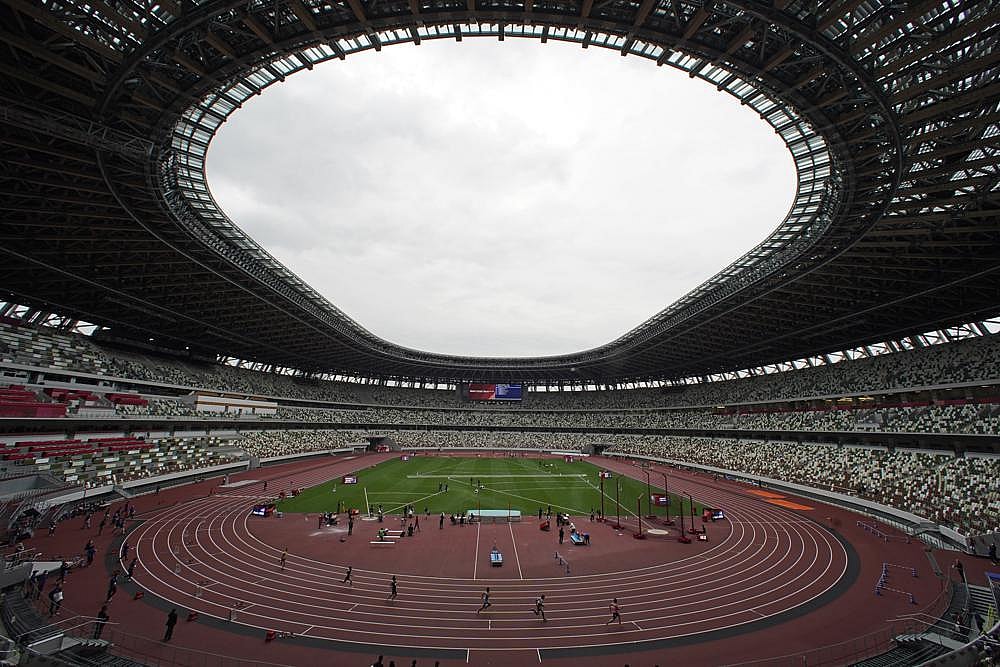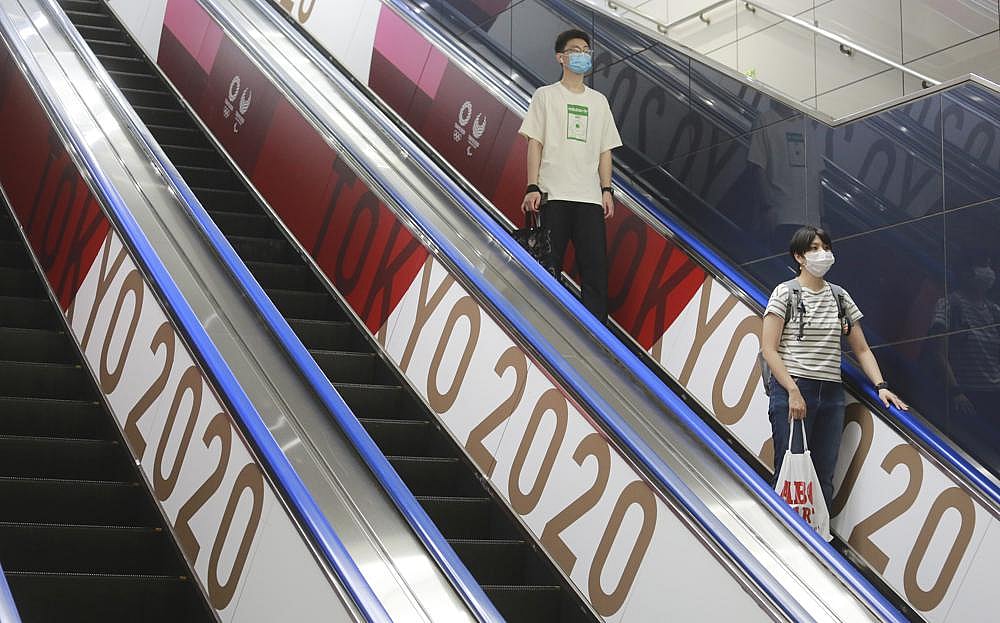The pandemic-delayed Tokyo Olympics are shaping up as a TV-only event with few spectators — if any — being allowed when they open in just over two weeks.
Japan’s Asahi newspaper, citing multiple unidentified government sources, said Tuesday the opening ceremony at the 68,000-seat National Stadium is likely to be limited to only VIP guests. The Olympics open on July 23.
The newspaper said other large venues are likely to have no spectators. Smaller venues are expected to allow some spectators.
Tokyo organizers and the International Olympic Committee are expected to announce the policy after a meeting likely on Thursday.
Two weeks ago, they announced that venues could be filled up to 50% capacity with a ceiling of 10,000. But surging virus numbers in Tokyo are forcing a rollback.

The IOC earns almost 75% of its income from TV rights, and will still generate $3 billion to $4 billion in income from a television-only event.
Fans from abroad were banned months ago.
Dr. Shigeru Omi, a top government medical adviser, has said the least risky Olympics would be with no spectators. He also said it was “abnormal” to hold the Olympics during a pandemic.
Asahi said the no-spectators policy could apply to events that take place after 9 p.m. and to larger venues where 50% of capacity exceeds 5,000.
VIPS, sponsors and others dignitaries will be allowed to attend the opening ceremony and other venues, but the newspaper said these numbers could also be reduced. The newspaper said this “special category” was about 10,000 people.
Organizing committee chief executive Toshiro Muto said two weeks ago that VIPs would be allowed into venues — over and above any spectator cap — and were classified as “organizers” and not spectators.
“There are many stakeholders of the IOC and so forth. People related to key clients. And for those people they are regarded as organizers of the games and they are not spectators,” Muto said.
Yoshiro Mori, the former president of the organizing committee, in an interview with Japanese television TBS, said he suggested an Olympics without spectators to other politicians in the ruling Liberal Democratic Party.
“I had said we should develop plans based on no spectators,” he said.

Mori, a former prime minister, was forced to step down five months ago as president of the organizing committee, after he was criticized for making “inappropriate” comments about women.
About 11,000 Olympic athletes and 4,400 Paralympians will be entering Tokyo, along with tens of thousands of coaches, administrators, broadcasters, and media.
The decision on spectators could come on the same day, Thursday, that IOC President Thomas Bach arrives in Tokyo. Bach is to self-isolate for three days in a five-star Tokyo hotel.
The government is also expected this week to extend quasi-state of emergency measures which end on Sunday.
The Tokyo Metropolitan Government on Tuesday reported 593 new coronavirus cases. It was the 17th straight day that cases were higher than they were a week earlier. On Saturday, the capital reported 716 new cases, the highest in five weeks.
The Tokyo government also confirmed on Tuesday that it will take the Olympic torch relay off the streets for all legs in the capital. Those legs were to begin on Friday. The exception is events on small islands off the Tokyo mainland.
The relay has repeatedly been rescheduled, rerouted, and sequestered in public parks away from the public since it began in March from northeastern Japan. The event is heavily sponsored by Coca-Cola and Toyota. There were suggestion after the postponement that it be canceled, but those ideas were quickly dismissed.
Have you subscribed to theGrio’s new podcast “Dear Culture”? Download our newest episodes now!
TheGrio is now on Apple TV, Amazon Fire, and Roku. Download theGrio today!

